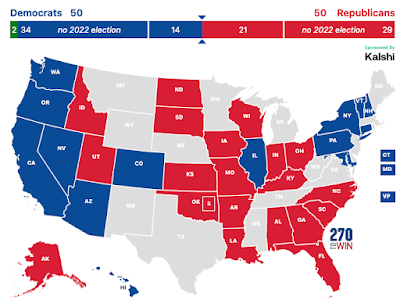UPDATED: Who Will Endorse in the Future?
11:15 am update: It has come to my attention that COSMOPOLITAN magazine has endorsed 10 congressional candidates this year. Does this change everything? Yes. (It's only a blog that was published less than 30 minutes ago, but still). So for the 2nd edition of this blog, I'll insert this point:
4a: Non-news media: There's politics in everything. Media outlets that deal with ostensibly non-political content could take advantage of the decline in traditional print publications to advocate their perspective. Therefore, while I'm surprised to see Cosmo jumping into congressional races to support pro-choice candidates (market forces would suggest they could alienate some readers), it seems like a logical extension of my argument.
---
On Monday, the Boston Globe endorsed Republican Charlie Baker for Governor. This has some Mass Dems up in arms. The first question to ask is, do endorsements matter?
Political science research has shown that yes, under the right circumstances newspapers endorsements can impact elections. This is particularly the case if it is an unexpected endorsement (like the liberal Globe endorsing a Republican -- a good sign for the Baker campaign). That being said, the effect is of a small magnitude (see Vox for an overview, but usually low-single digits)
4a: Non-news media: There's politics in everything. Media outlets that deal with ostensibly non-political content could take advantage of the decline in traditional print publications to advocate their perspective. Therefore, while I'm surprised to see Cosmo jumping into congressional races to support pro-choice candidates (market forces would suggest they could alienate some readers), it seems like a logical extension of my argument.
---
On Monday, the Boston Globe endorsed Republican Charlie Baker for Governor. This has some Mass Dems up in arms. The first question to ask is, do endorsements matter?
Political science research has shown that yes, under the right circumstances newspapers endorsements can impact elections. This is particularly the case if it is an unexpected endorsement (like the liberal Globe endorsing a Republican -- a good sign for the Baker campaign). That being said, the effect is of a small magnitude (see Vox for an overview, but usually low-single digits)
Endorsements matter because they are, well, news. In the waning weeks of a campaign this is a quantity that is sorely lacking.
The question I'd like to ask though, is what will happen in the future? Newspapers are on the decline (several have already reduced circulation or stopped their presses in major US cities like Denver, Seattle and New Orleans). So where will endorsements come from?
The options, from least to most likely:
1) Blogs: Doubt it. Political blogs are usually written to espouse a political perspective year round, so their audience knows their ideology. Audiences usually flock to like-minded content. Therefore their endorsements carry little weight.
2) Political Scientists: Ha. Just kidding. Political scientists go out of their way to not take positions on active races. (For whatever reason, it seems that Humanities professors, especially English profs, are far more politically outspoken... Why? Beats me.)
 |
| This is the least crazy picture of Zell Miller I could find. |
3) Local Television News: Now that I think about it, I don't know why local television news programs don't endorse candidates. It's not like they take themselves more seriously than print publications.
4) Newspapers. Even if their print circulation goes down, they'll survive online, albeit in diminished form. And they'll keep pumping out those editorials.
5) You. (Like when Time named "You" person of the year, congratulations on that by the way.) Everyone has a platform now, and your Facebook likes, or retweets that are actually endorsements may carry enough weight to influence your fellow voters. This could especially be the case if you are an "opinion leader".*
6) Other politicians. In our polarized partisan environment, endorsements from politicians only matter if they are unexpected. However, the media loves them. If a Democrat endorses a Republican ala Zell Miller in 2004, or if an eminent non-partisan figure jumps into the fray (like Colin Powell endorsing Obama in 2012), it is a newsworthy event that can cause a media storm.
So that is where to look for endorsements in the future. Enjoy the last week of the campaigns!
So that is where to look for endorsements in the future. Enjoy the last week of the campaigns!
*There's a classic theory in political communication called the two-step process of influence (Step 1: From the media to opinion-leaders, step 2: opinion leaders to the masses), although it's never really been proven. Glory will befall on the academic that use social media data to successfully test it empirically.

